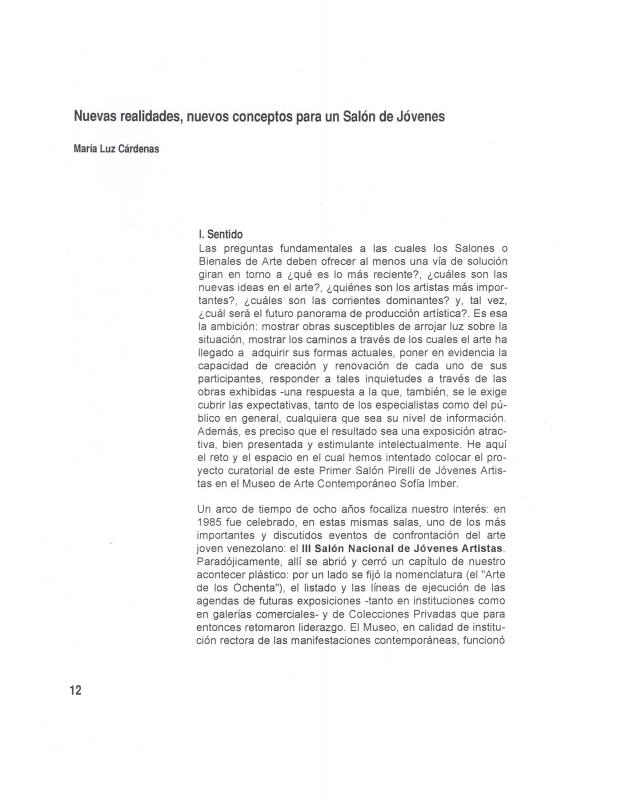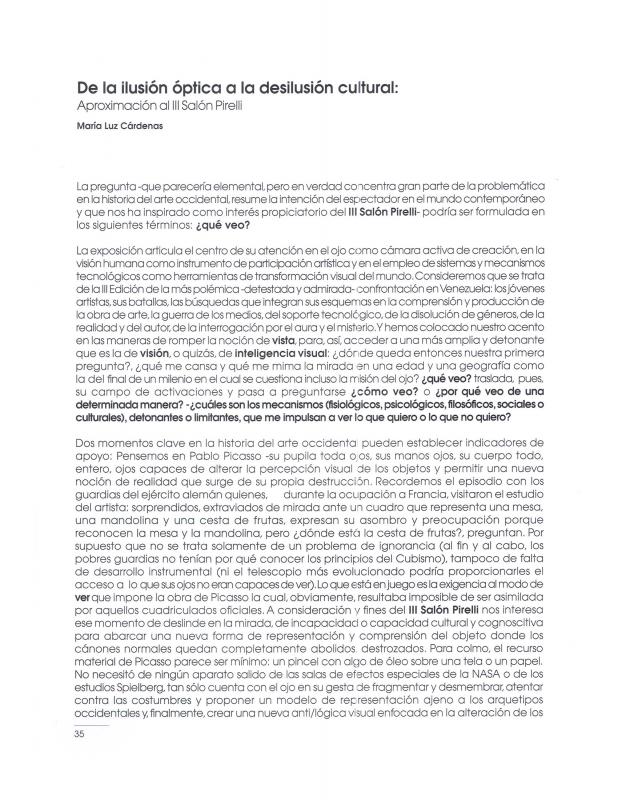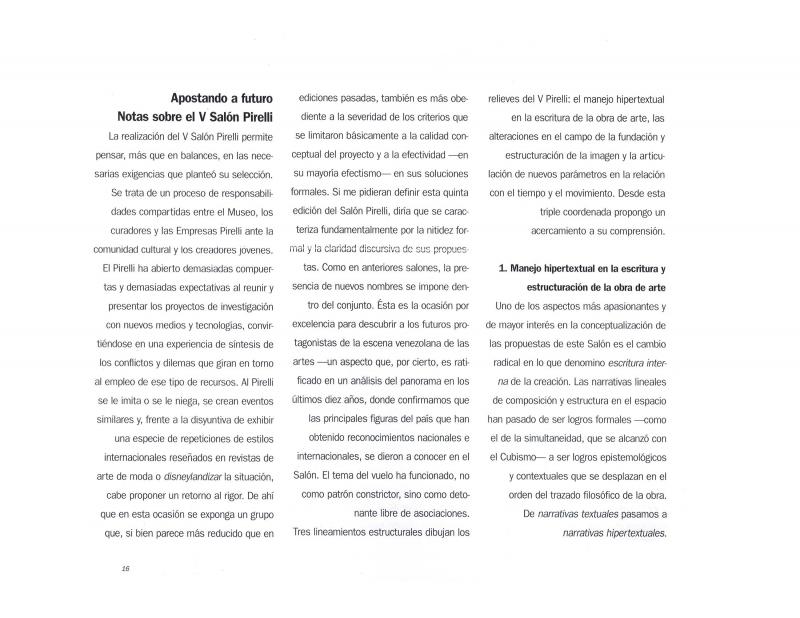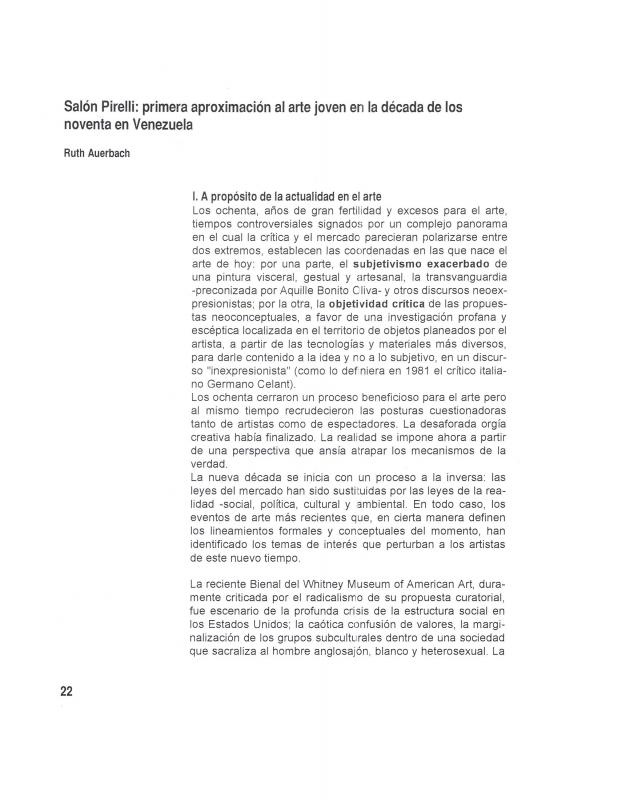This text provides an analysis of Venezuelan society in the nineties. According to María Luz Cárdenas (b. 1952), a critic and curator of Venezuelan art, that decade witnessed changes following the advent and rapid spread of new reality-altering technologies. Venezuelan society is marked by the mass production of “beauty queens”; it fails to take action against corruption and takes for granted violence as a way of life. Cárdenas speaks of the II Salón Pirelli, which she directed, as an exhibition of modes of communication—rather than of art objects—that were placed into three basic conceptual categories: (1) “The Split Self,” which addresses new ways of relating to the human, the body, and to the idea of identity; (2) “Violence,” which addresses nationwide unrest as a way of relating to the world; and (3) “Post-Nature,” which addresses affinities and oppositions between the natural, the artificial, the urban, and the industrial (this category draws on the texts written for the exhibition Artificial Nature, held at the Deste Foundation in Athens, Greece, in 1990, that was curated by Jeffrey Deitch).
For other texts by Cárdenas on the Salón Pirelli, see “Nuevas realidades, nuevos conceptos para un salón de jóvenes” (doc. no. 1161393), “Aproximación al III Salón Pirelli” (doc. no. 1162019), and “Apostando a futuro: Notas sobre del V Salón Pirelli” (doc. no. 1162038). Other writings on the event include: “Salón Pirelli: Primera aproximación al arte joven en la década de los noventa en Venezuela” (doc. no. 1161411), by Ruth Auerbach, a critic and curator of Venezuelan art.




